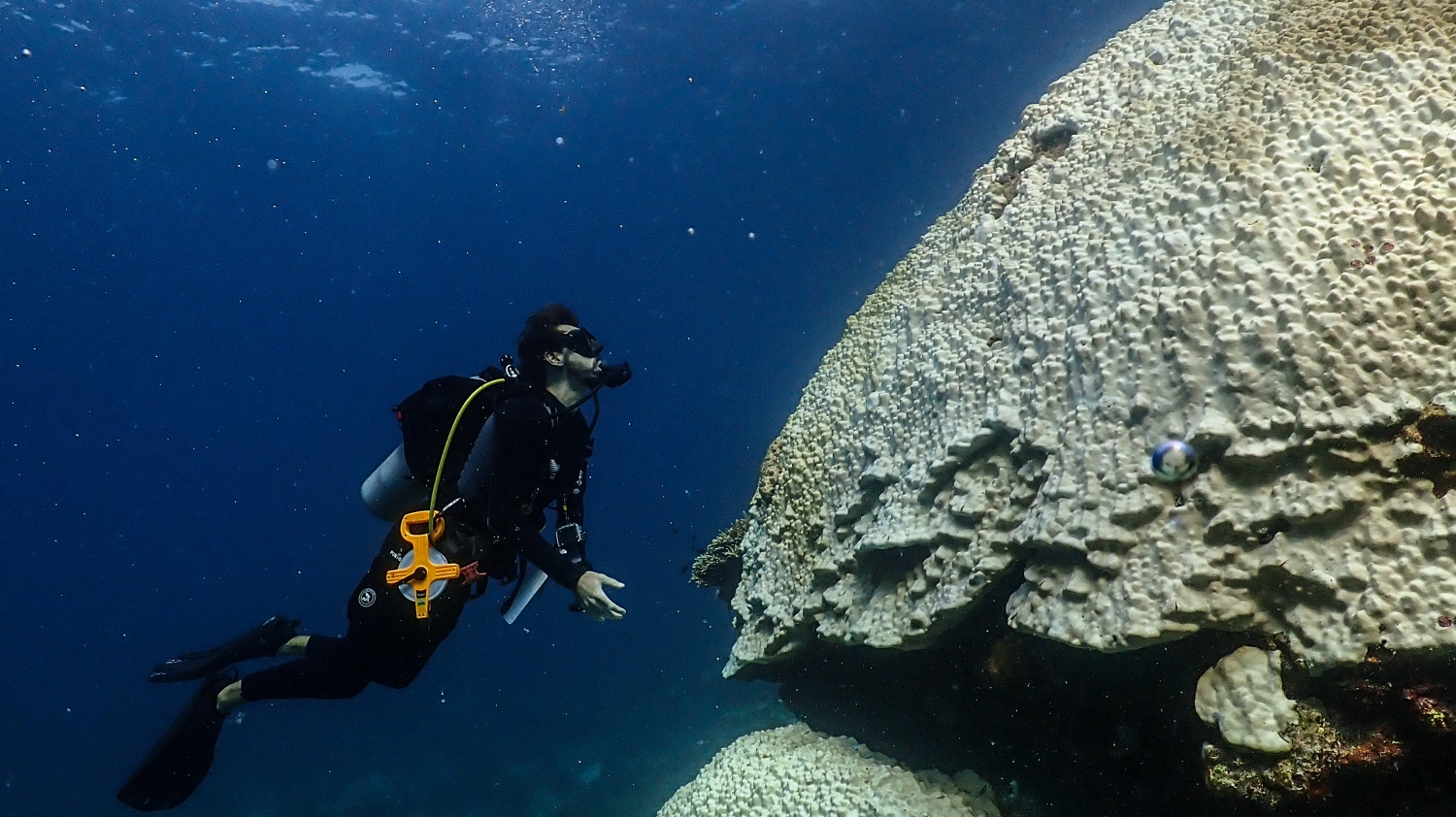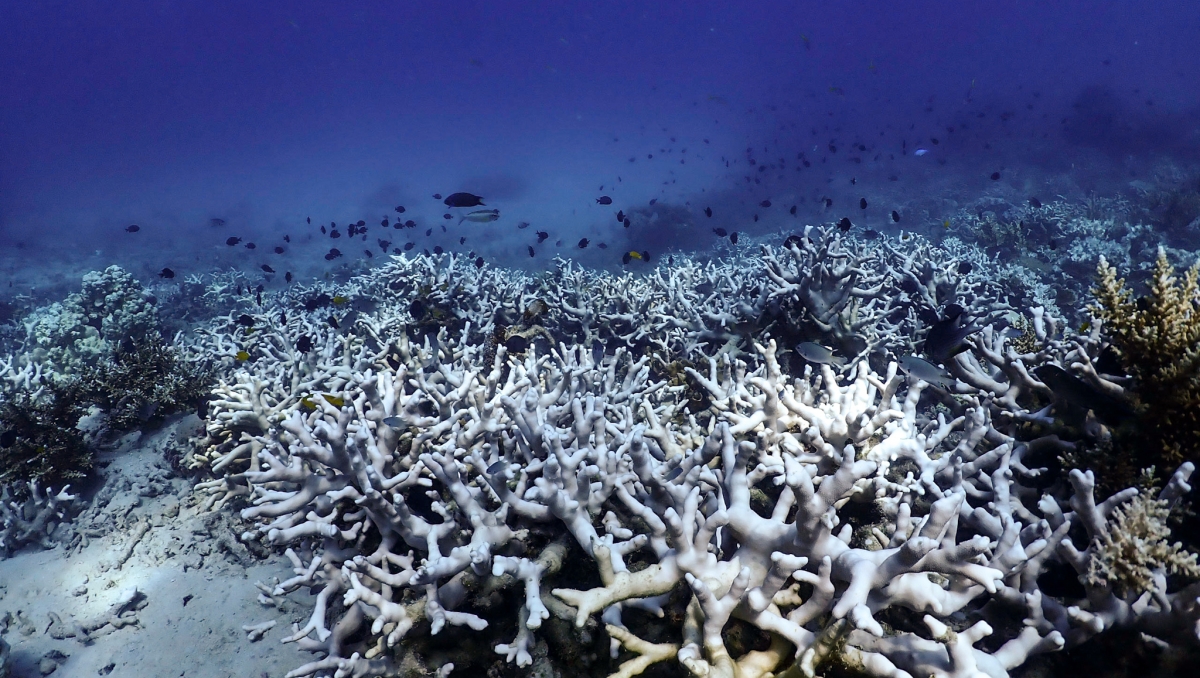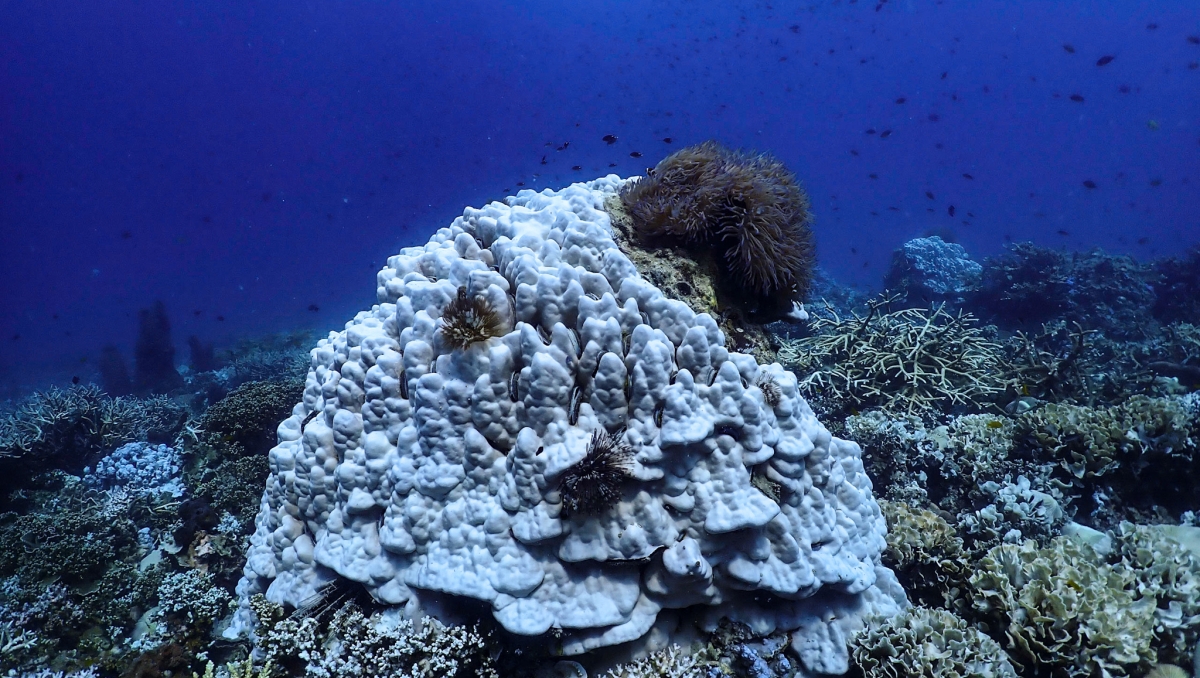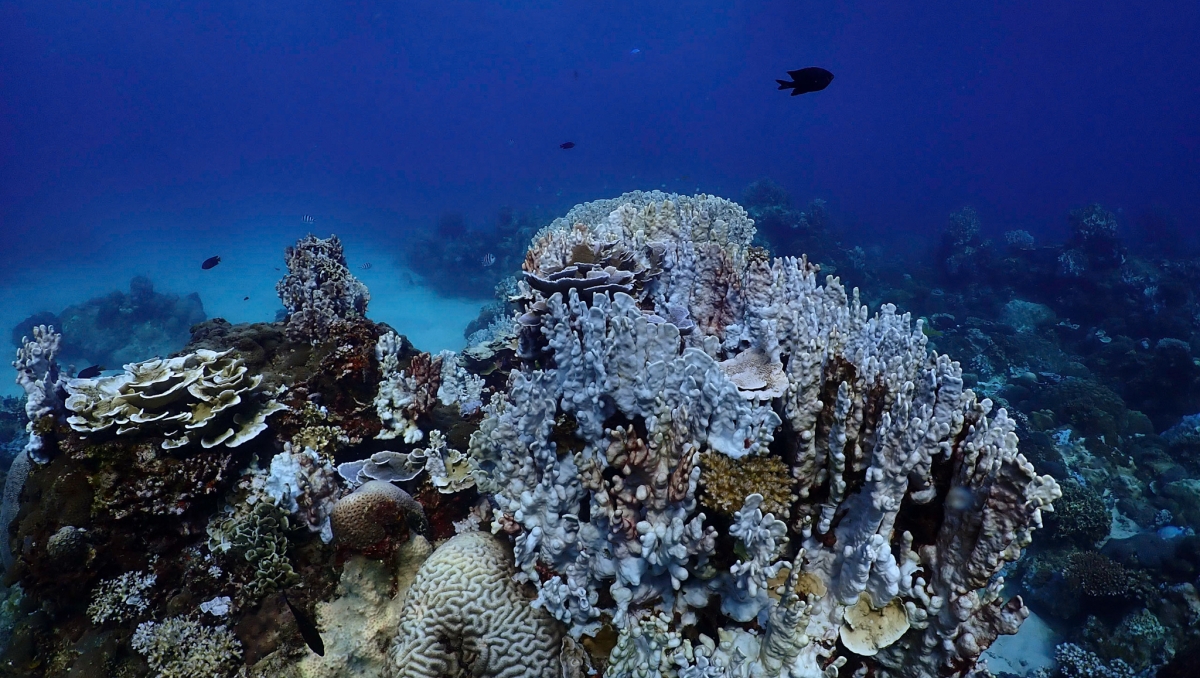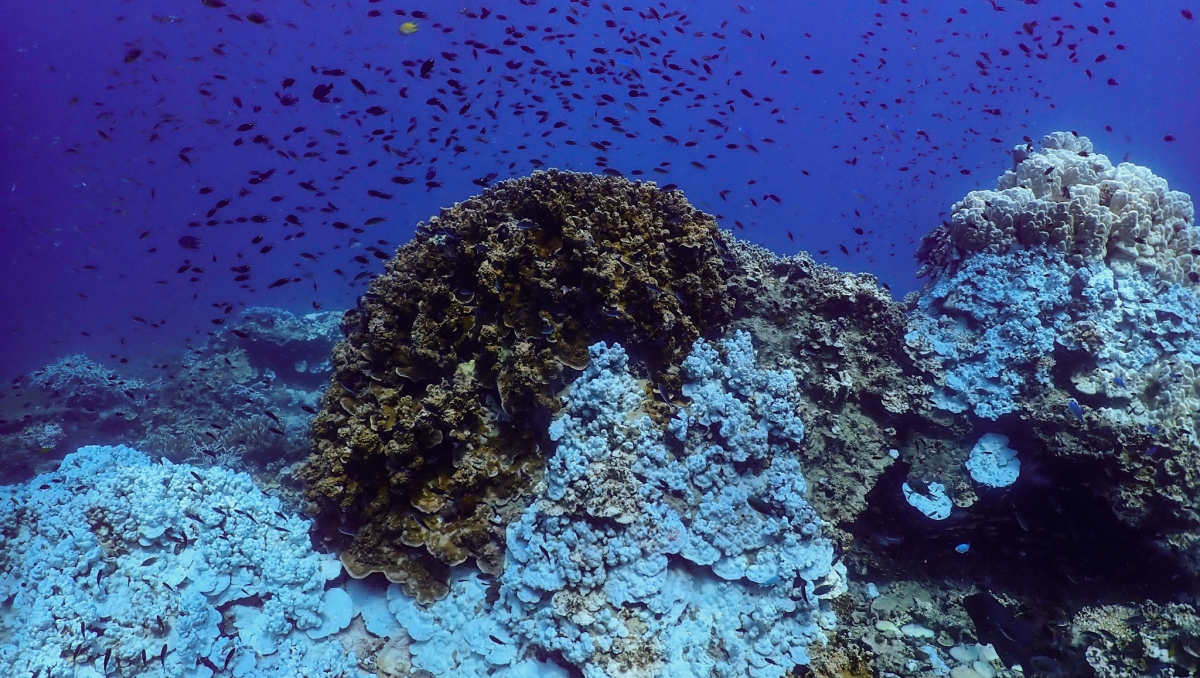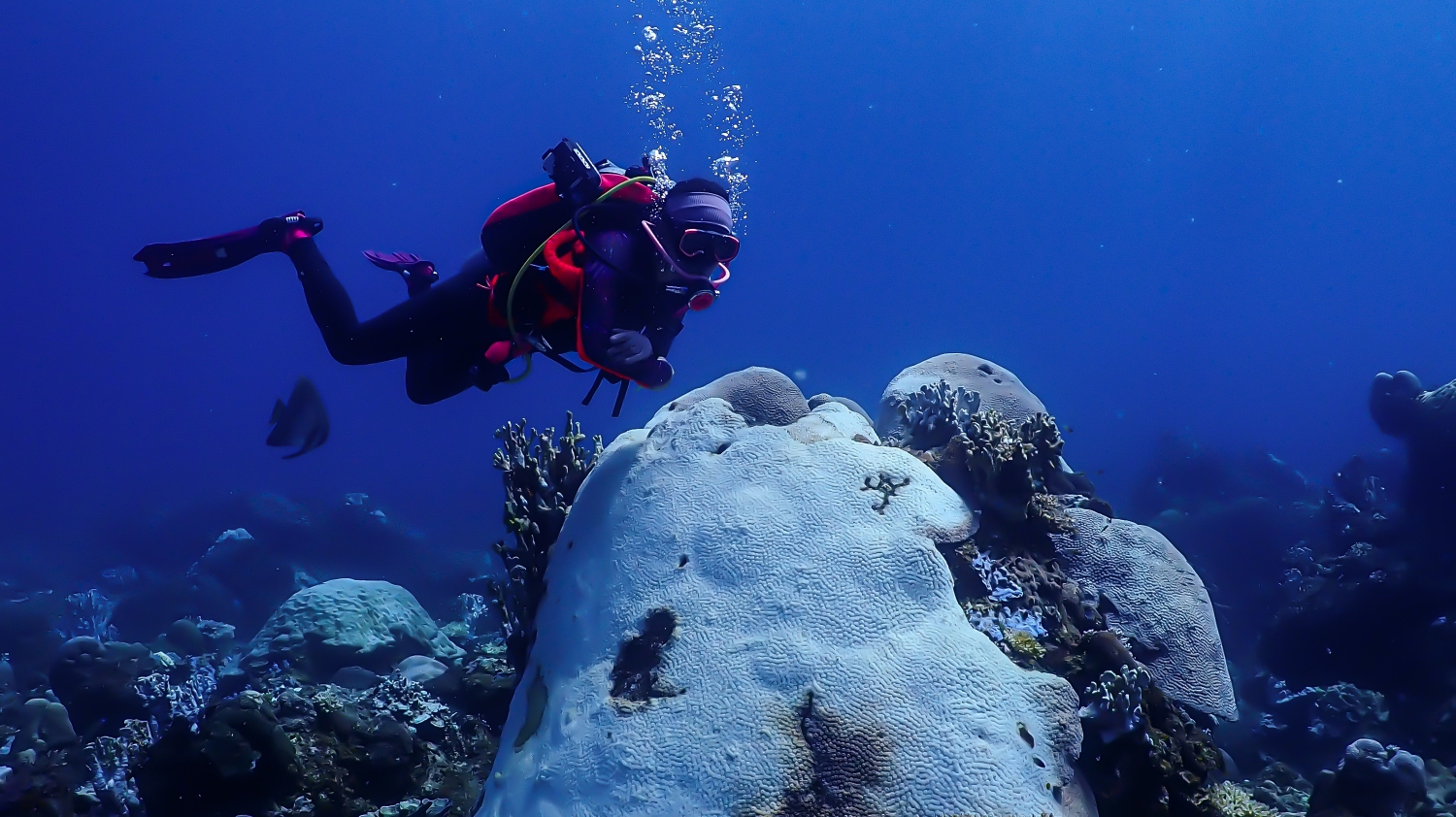Coral protection, a human right
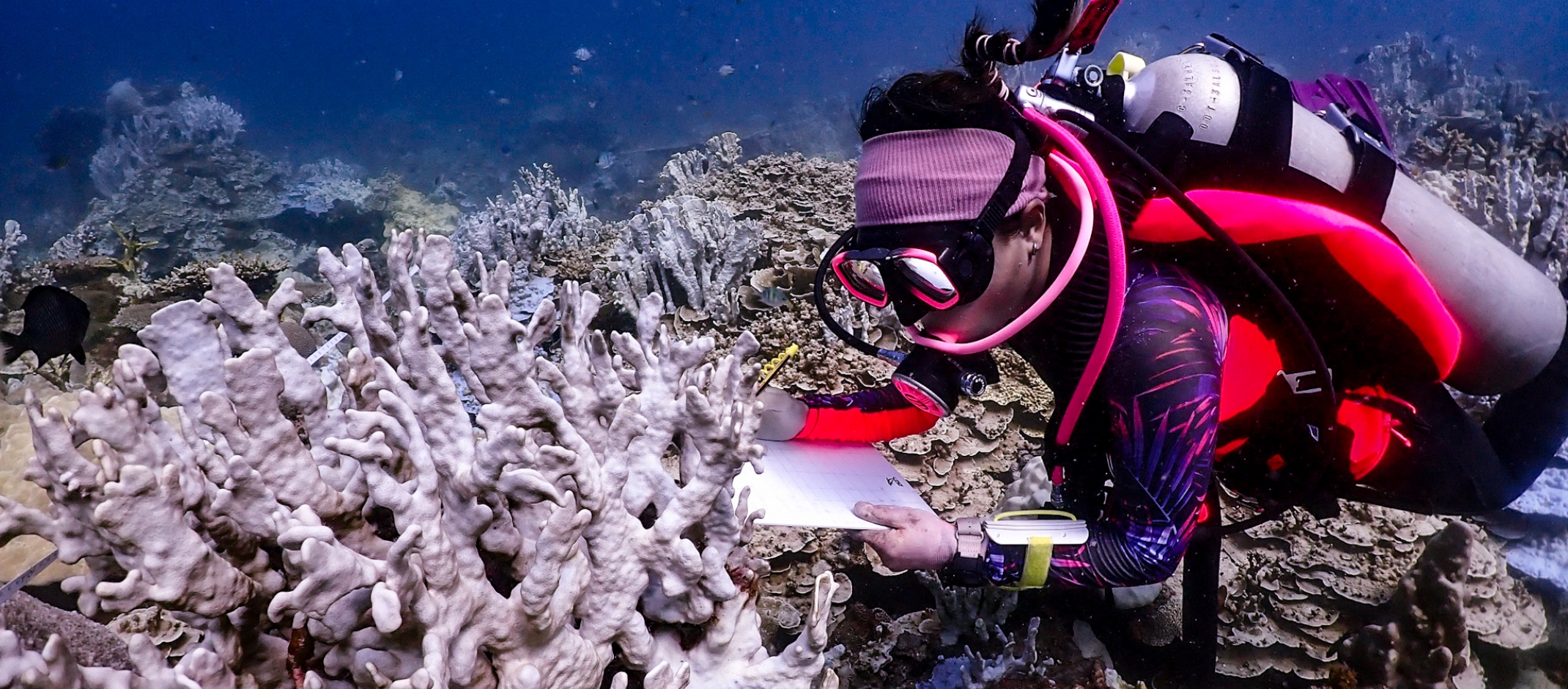
Corals are threatened by extinction. Large-scale mortality of corals in the Great Barrier Reef caused a stir this spring, however, the warming of the oceans had already led to coral bleaching worldwide in previous years. In line with the International Panel of Climate Change (IPCC), coral researcher Christian Voolstra from the University of Konstanz agrees that there is a good chance we will lose more than 90 percent of all corals by the end of the century: a mass extinction of one of the most important ecosystems in the sea, with dramatic consequences for millions of marine species – and also for humans.
Christian Voolstra and his colleagues are now proposing an unusual way to save the coral reefs: Declaring coral protection a human right. In the interview Voolstra, who is also president of the International Coral Reef Society (ICRS), explains what corals have to do with human rights and why the measure would actually speed up coral protection. A comprehensive article with detailed recommendations was published in the journal Global Change Biology.
© Sebastian Szereday, Coralku, Malaysia
Professor Voolstra, what does coral protection have to do with human rights?
Christian Voolstra: The existence of many people is tied to functioning coral reef ecosystems. Millions, especially in coastal regions, depend on coral reefs for their food, livelihoods and cultural wealth. The protection of these reefs thus indirectly secures the right to food, water and work, especially for indigenous communities that are tightly interlinked with these ecosystems.
This is why healthy coral reefs are directly connected to the fate and well-being of many people. The protection of coral reefs as a human right would promote the "One Health" approach, which recognizes the inextricable link between the health of humans, animals and ecosystems.
What effects would it have in practice if coral protection were classified as a human right?
The legal framework for human rights already exists. So the implementation and monitoring of legal consequences (see below) could happen quickly. This would have far-reaching legal, political and social effects. Here are some possible consequences:

"States would be obliged under international law to take measures to protect coral reefs. This could lead to stricter environmental laws and better enforcement of existing laws to prevent the destruction of coral reefs through pollution, overfishing and climate change."
Christian Voolstra, professor of genetics of adaptation in aquatic systems at the University of Konstanz and president of the International Coral Reef Society (ICRS).
Coastal communities that depend heavily on coral reefs could claim their rights through legal proceedings. For example, indigenous peoples and fishing groups could better protect their livelihoods by filing lawsuits in international courts against governments or corporations that are endangering the reefs through harmful practices.
Recognition as a human right could also mobilize more international funds and resources for coral protection. States and international organizations would have to prioritize investments in the protection and restoration of coral reefs in order to meet their human rights responsibilities.
What impact would it have on climate policy?
As climate change massively affects coral reefs, climate protection would be more closely linked to the human right to coral protection. This in turn could lead to more ambitious climate targets to limit ocean warming and preserve coral reefs.
But it is also about transparency and accountability: Governments and companies whose actions threaten the health of coral reefs could be better held accountable. This would lead to increased transparency and possibly to more restrictive regulations for the use of the sea.
What needs to happen for coral protection to become a human right?
A key step would be to promote and support existing international initiatives that recognize the right to a healthy environment as a human right. The United Nations (UN) has already started to put this issue on the agenda. In multilateral forums such as the UN or regional human rights organizations, countries could advocate for incorporating the protection of ecosystems, including coral reefs, within the right to a healthy environment.
A pragmatic step would also be to extend existing environmental agreements: International agreements such as the Convention on Biological Diversity (CBD) and the Paris agreement on climate change could explicitly include the protection of coral reefs as part of global commitments. Governments could advocate for stronger, binding commitments to prevent the destruction of coral reefs.
© Sebastian Szereday, Coralku, Malaysia
What could we do at the national level?
Countries could enact laws or extend existing laws to recognize the protection of coral reefs as a human right. You could, for example, amend the constitution or issue new legal regulations that link the protection of the environment with citizens' fundamental rights.
Political campaigns could focus on interlinking the protection of coral reefs with social justice, especially for coastal communities, indigenous peoples and countries of the Global South, which are disproportionately affected by the destruction of these ecosystems. This aspect could gain importance in global justice discourses and strengthen political alliances.
In society, we need to promote education and raise awareness:
"One of the biggest challenges in coral conservation is to make it clear how important coral reefs and their protection are. Educational campaigns could be run in schools, universities and among the general public to highlight the role of coral reefs for the environment and human well-being. It is important to point out the link between environmental destruction and human rights."
Christian Voolstra
From a pragmatic point of view, coral protection as a human right is not a far-fetched idea. There are successful examples where something very similar has happened, which we also mention in our article.

